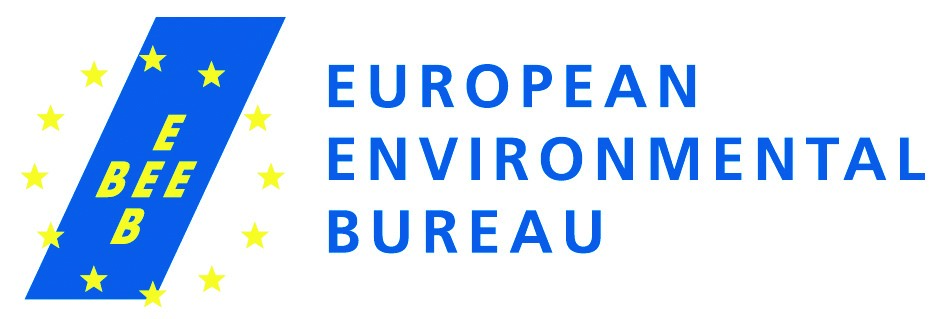On Mercury
EEB/ZMWG[1]-FAO/EC Project Overview:
“Contributing to the preparation/implementation of the Minamata Convention on Mercury, with a focus on developing strategies for phasing out mercury-added products and on reducing mercury use in Artisanal and Small Scale Gold Mining through development of National Action.”
1. Background and context
Following its 2009 Decision 25/5, the United Nations Environment Programme (UNEP) Governing Council convened an Intergovernmental Negotiating Committee (INC) to prepare a legally binding instrument on mercury. Five INC meetings took place and the treaty text was finally agreed to on 19th January 2013, in Geneva, Switzerland. In October 2013 in Kumamoto, Japan, the Minamata Convention on Mercury was adopted and opened for signature.
Over the next three to five years, many countries signing on the Convention will likely need to conduct their Minamata Convention preparation activities. Related to this, a number of countries have already accessed funding from the Global Environment Fund for Minamata Implementation Activities and other related activities.
The non-governmental organization (NGO) European Environmental Bureau, in collaboration with the Zero Mercury Working Group, will work with local NGOs in four countries from the African Caribbean Pacific (ACP) group, specifically in the African region. In view of this work, we respectfully extend our offer to support these countries in preparing to conduct their Minamata Convention obligations in regard to provisions for 1) developing National Action Plans designed to reduce mercury use and release in Artisanal and Small-scale Gold Mining (ASGM) and 2) the phase-out of mercury-added products.
2. Overall objectives of the project
With funding provided by the European Commission (EC) through the Food and Agriculture Organization (FAO) of the UN, the European Environmental Bureau, in collaboration with the Zero Mercury Working Group (ZMWG), (hereafter referred to as EEB/ZMWG), will support at least in part the preparation for ratification and early implementation of the Minamata Convention on Mercury in four countries in the African region, which may then be used as a model for other countries in the ACP regions and perhaps elsewhere, by delivering the following outcomes, subject to discussions with the governments as relevant:
- Formulation of specific strategies in two selected African countries for addressing the mercury-added products phase-out provisions of the Minamata Convention;
- Technical assistance to the two selected countries in developing National Action Plans (NAP) for reducing mercury in Artisanal and Small scale Gold Mining (ASGM) as per the Minamata Convention;
- A summary of the above activities together with model legislation/ action plans that may also be developed, will be presented during regional conferences, contributing support and awareness raising for national and regional stakeholders interested in mercury reduction initiatives particularly related to the Minamata Convention.
The mercury-added product phase out initiatives and ASGM national action plans created under this project will enhance the ability of the selected African countries to work toward ratification and early implementation of the Minamata Convention. Specifically, by the end of the project, it is hoped that, countries’ representatives will have more clarity and direction on their overall Convention ratification and implementation obligations vis a vis the two specified areas – phasing out mercury-added products and reducing mercury use and release in ASGM, whilst becoming well prepared to put in place the Convention obligations in these two areas.
3. Project Partners
The EEB/ZMWG, with resource person assistance provided by the Mercury Policy Project (USA), the Natural Resources Defense Council (USA) and groundwork (South Africa), plans on working collaboratively with local NGO Partners, including: Sustainable Research and Action for Environmental Development (SRADev) in Nigeria; Pesticide Action Network (PANeM) in Mauritius; Friends of the Nation (FoN) in Ghana; and AGENDA for Environment and Responsible Development (AGENDA) in Tanzania in implementing the projects where these local NGOs reside, as per the goals of the Minamata Convention on Mercury and the aspirations of each of the governments in the four African countries. The focus area in Nigeria and Mauritius will be the phase out of mercury added products, while in Tanzania and Ghana the reduction of emissions and use of mercury in ASGM.
4. Opportunities for Cooperation
Aware that multiple endeavours related to mercury awareness raising, exposure and pollution reduction initiatives are, were, or maybe on-going in the four respective project countries, the EEB/ZMWG, with its partners in this project, would appreciate opportunities to discuss and where viable and appropriate, cooperate and coordinate our respective project work with UN agencies, government ministries, stakeholders, and other relevant parties. To assure coordination, EEB/ZMWG would also welcome letters or expressions of interest in the project from the Ministries of Environment in the four selected project countries.
[1] The European Environmental Bureau (EEB), located in Brussels, Belgium, is a federation of over 140 environmental citizens’ organisations based in 30 EU Member States, in candidate, potential candidate and neighbouring countries. These organisations range from local and national, to European and international. Created in 1974, EEB aims to provide a focal point for our members to monitor and respond to the EU’s environmental policies. EEB is the environmental voice of European citizens, standing for environmental justice, sustainable development and participatory democracy. We want the EU to ensure all people a healthy environment and rich biodiversity.
The Zero Mercury Working Group (ZMWG) is an international coalition of over 95 public interest environmental and health non-governmental organizations from more than 50 countries from around the world formed in 2005 by the European Environmental Bureau and the Mercury Policy Project. ZMWG strives for zero supply, demand, and emissions of mercury from all anthropogenic sources, with the goal of reducing mercury in the global environment to a minimum. Our mission is to advocate and support the adoption and implementation of a legally binding instrument which contains mandatory obligations to eliminate where feasible, and otherwise minimize, the global supply and trade of mercury, the global demand for mercury, anthropogenic releases of mercury to the environment, and human and wildlife exposure to mercury.
For more information on EEB’s Zero Mercury Campaign and ZMWG, see: www.zeromercury.org, www.eeb.org


